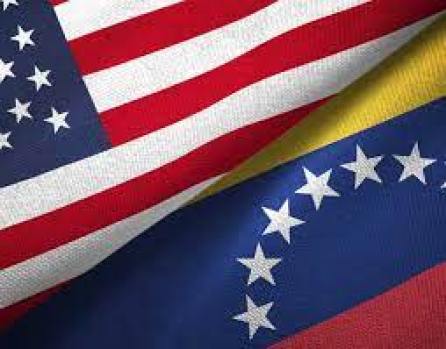
US president Joe Biden’s administration has pushed back against calls from Latin American leaders to lift sanctions against Venezuela.
By Argus Media – Haik Gugarats
Apr 21, 2023
Colombian president Gustavo Petro is the latest regional leader to push for sanctions relief, coming after a similar call from Brazil’s president. Petro in a meeting with Biden at the White House on Thursday argued that Venezuelan president Nicolás Maduro’s willingness to talk with opposition parties merits at least a partial relaxation of financial and oil sector sanctions against Venezuela that the US has had in place since 2019.
“We would review our sanctions policies in response to constructive steps by the Maduro regime and if the Venezuelan parties can make meaningful progress and return to a democracy in the country,” the White House said in response.
Petro’s government next week is hosting talks in Bogota between the Maduro government and the various wings of the Venezuelan opposition. More than 20 other Latin American and European governments will attend to encourage the talks.
Petro in remarks to reporters following his meeting with Biden argued that even partial progress in Venezuela talks should lead to sanctions relief. The US administration has said that it will lift sanctions against Venezuelan oil exports only if the Maduro government agrees to hold free and fair parliamentary and presidential elections in 2024 and fulfills the pledge. But Petro said he argued for a gradual approach — “as the electoral agenda is fulfilled, those sanctions are also lifted in parallel.”
US sanctions in place prohibit US-based and affiliated companies from exporting Venezuelan crude and other commodities, with a few exceptions that do not involve payments to the Venezuelan government. The White House in November allowed Chevron to lift oil from its joint ventures with state-owned PdV and to export it to the US.
The authorization prevents Chevron from paying royalties and taxes to the Venezuelan government or dividends to PdV. And Chevron will not be allowed to expand its presence in Venezuela beyond the joint ventures in place as of January 2019. The authorization nominally expires on 26 May, but informal guidance from the administration suggests that it will renewed unless Maduro reneges on the promise of talks with opposition.
The initial lifting of some sanctions has supported Venezuela’s oil production, and led to the first exports to the US since 2019. Production from the Chevron joint ventures with PdV alone has reached about 120,000 b/d and represents about 20pc of Venezuela’s oil exports.
There is little expectation in Washington or among the ranks of the Venezuelan opposition that talks with the Maduro government will produce the desired outcome. Maduro, who has survived the brunt of US sanctions and regional political pressure in 2019-22, has little incentive to agree to a competitive election that could dislodge him from power.
The majority of countries in the western hemisphere and Europe in 2019 agreed to remove recognition from Maduro and acknowledged opposition leader Juan Guaido as the country’s interim president. But the externally-backed Venezuelan opposition has failed to take power, and elections held in the past two years brought new leaders to power in South América who are more amenable to working with Maduro. Colombia’s previous government was once among the most vocal opponents of Maduro.
The US now stands alone in refusing to recognize Maduro’s legal authority to rule Venezuela, even though the Biden administration has re-established contact with his government.
…
Read More: Argus Media – US pushes back on Venezuela sanctions relief
…

